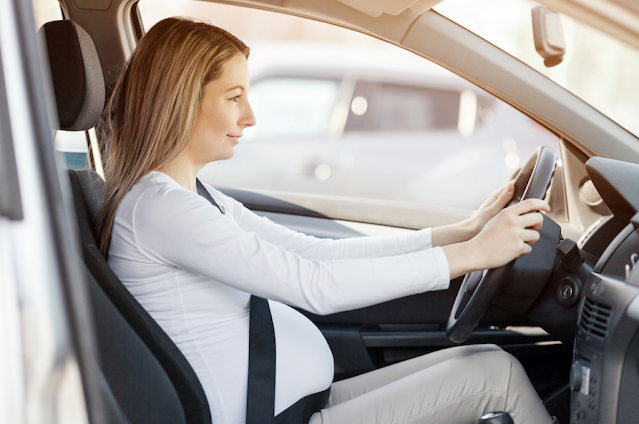Driving is an important aspect of many people's lives, and it doesn't cease when they get pregnant. It's difficult to know when to stop driving during pregnancy, or even if we should stop at all. Safety is, of course, paramount, both for the infant and for you. This is why it's crucial to think about when you should stop driving. Consult your doctor and conduct your research to determine the best way to protect yourself and your baby. We have more than our safety to consider as pregnant ladies.
Hazards you need to consider
To begin with, even if you are not pregnant, driving can be dangerous. Every year, around 3 million individuals are wounded in car accidents on American highways. Driving while pregnant can pose a risk to your safety.
Our bodies are a lot more fickle than they used to be. Car rides can trigger nausea, migraines, and other physical aches that we didn't have before. Motion nausea is almost unavoidable, especially in the first trimester. While we've all driven while suffering from physical ailments, these can be a frequent, if not continual, source of distraction. It's just harder to concentrate when you're on the verge of puking on your lap.
Because pregnancy can be taxing on the body, staying well-rested and hydrated can help us have a better overall experience while concentrating on safe driving. We should make every effort to avoid potential driving distractions, such as cell phones so that you can focus on the road and arrive safely at your destination. If this isn't your first child, there's a chance you'll have other kids in the car with you. Ascertain that they are securely fastened in their vehicle seats. It is critical to keep our minds focused and our bodies healthy to avoid accidents, especially while pregnant.
Accidents are, of course, a possibility every time you get on the road. Extra care should be taken to assist avert accidents:
- Travel to the destination earlier
- Slow down your pace.
- Consider taking the scenic route
- Make sure your tyres are properly inflated.
- Make sure you're wearing your seatbelt correctly.
- Check to see whether you can turn and see out of your blind areas.
Welcome to the increased knowledge of driving risks while caring for valuable goods, if all of these seem like things your mother may say. Being more aware and cautious does not have to detract from your driving experience. Consider it a series of small efforts you're taking to safeguard your child.
When to stop driving
While there is no formal rule on when we should stop driving, many medical professionals agree that if we can't sit and drive properly, we should wait until after the baby is born.
Some women like to drive throughout their pregnancy (even during labour, which I strongly discourage! ), while others prefer to be driven. If you're afraid of driving or aren't feeling well, ask a family member or loved one to drive you about for the day.
Thankfully, there are more ride-sharing and public transportation options than ever before, but you must make the best decision for you and your future child or children, as with everything else related to your pregnancy. The safety of the newborn should always take first.
Read more: Working Night Shifts During PregnancyRead more: Food During Pregnancy
Key lesson: how to use the seat belt on the belly
One of the most crucial lessons we need to learn as pregnant women are how to correctly wear our seatbelts. Of course, there will be times when no matter what we do, it will not be comfortable, but there is a definite manner you should wear your seatbelt during the first few weeks of your pregnancy. Make sure the belt is tucked in rather than sitting over your stomach. The seatbelt should always be set below your belly button as your tummy expands so that if an accident occurs, the risk to your baby is minimised.
When deciding whether or not to drive while pregnant, there are many factors to consider. We don't always have a choice; we have to get to work or our doctor's appointment on time. Before getting behind the wheel, consider how you're feeling that day, how far you have to drive, and whether you'll be able to take breaks as needed. Use your best judgement based on how you're feeling and whether or not you believe you can drive safely.
Author:
Bump2Baby Scans
Barkby House,
99 Barkby Road,
Leicester,
Leicester,
United Kingdom
LE4 9LG

Comments
Post a Comment